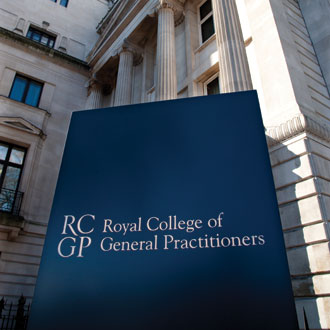Exclusive Extending charging for migrants accessing general practice would be a ’regressive step’ that would undermine GPs’ ability to protect public health and could lead to more deaths across the population, the RCGP has warned.
The college has responded to the Department of Health’s consultation, published in December, into plans for charging overseas visitors and migrants for some GP services such as blood tests, lung function tests and prescriptions, while consultations would remain free of charge.
The response warned that changing the eligibility criteria for GP services could impact adversely on the health of the homeless, travellers and gypsies and ‘individuals with chaotic lives’ who may struggle to prove they are eligible for all GP services.
But it adds that the plans could lead to ’adverse consequences for… the population as a whole’ because people would be put from seeing their GP, making it harder to control infectious diseases, highlighting the current ‘dangerous surge in TB’.
The submission said: ’There is a real risk that their proposals would exacerbate this problem and increase the risk of multi-resistant TB, resulting in both more deaths and increased transmission of the disease.
’While we note that the consultation proposes to exempt the treatment of infectious diseases from charges, this fails to recognise that diagnosis is a core activity of general practice. Often people suffering from infectious diseases do not know what is making them ill.’
The RCGP further warned that the DH may see a ‘costly increase in emergency admissions’ by deterring a significant number of patients from presenting early in general practice.
The submission said: ’The RCGP opposes any change to the eligibility rules for overseas visitors and migrants accessing general practice. We believe that this would be a regressive step for the NHS and would undermine the ability of GPs to protect and promote the health of their patients and the public.’
It added that the college would ’strongly impose the imposition of any new administrative burden on general practice as a result of the proposals under this consultation’.
The DH has floated ideas for GP practices to ask all newly registering patients to show proof of their migration status, such as a European Health Insurance Card (EHIC) or an S1 form.
But the RCGP said that any new system for checking eligibility and potentially charging patients ’will necessarily increase the administrative pressure on individual GP practices [at a time when] general practice in the UK is already facing a workforce and workload crisis’.
It concluded: ’We call unequivocally for the retention of a system that is free for all accessing general practice in England, including overseas visitors and migrants.’
Dr Maureen Baker, chair of the RCGP, warned that the plans will mean that “GPs and our teams will be left doing the grunt work’.
She added: ’The college remains concerned that a system of charging for some services and not others will lead to confusion amongst patients and may deter them from seeking medical care when they are sick.’
But a Pulse survey last year revealed that more than three quarters of GPs are in favour of charging foreign visitors for accessing primary care.
The BMA has also contributed to the consultation but did not want to share its submission.
Since April last year, overseas visitors are already charged at 150% of the tariff price for hospital treatments.
GPs as border guards

Money – coins – cash – online
At the very least what is likely to come out of the DH consultation is for GP practices to routinely check patients’ migration status.
A pilot in practices found that such a move would add just 30 minutes of extra work per month for practices to ask patients to present a European Health Insurance Card (EHIC) or S1 form, the DH claimed.
GP leaders have previously said GPs should not have to check migrant status, but the DH consultation indicated that they will be asked to reconsider.
It comes as Pulse revealed last year that the UK pays 15 times more out to EEA countries that it receives for healthcare.
In 2014/15, the UK paid out a total of £659.7m for healthcare supplied in other EEA nations, whilst receiving just £43.3m.

















